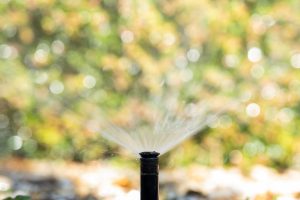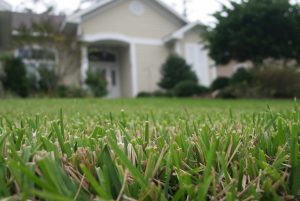
A new publication by University of Florida scientists on the efficacy of fertilizer ordinances provides an overview of a previously published study that found local fertilizer ordinances can improve water quality, but the timing of ordinances can influence their effectiveness.
The results of this prior study suggest that more research is needed into how and why different ordinances are more or less effective.
Scientists also agree that studies should consider other drivers impacting water quality trends such as toxins or waste from septic and sewage systems and fossil fuel emissions.
The just published ASK IFAS document synthesizes a 2022 published study led by scientists at UF’s Institute of Food and Agricultural Sciences (UF/IFAS). Researchers investigated the long-term impacts of fertilizer ordinances across 160 lakes throughout Florida. The ASK IFAS document also provides additional takeaways on other studies that could help mitigate quality problems.
“This ASK IFAS document is written to summarize the prior scientific publication for non-experts, including UF/IFAS Extension faculty, local regulatory officials, green industry professionals, and concerned citizens,” said A.J. Reisinger, an assistant professor in the UF/IFAS department of soil, water and ecosystem sciences and one of the authors of the study. We encourage the readers to use this information to highlight the effectiveness of fertilizer ordinances, but we also recognize the complex nature of water-quality issues.”
Nitrogen and phosphorus are nutrients that are natural parts of aquatic ecosystems, but these nutrients can degrade water quality when present in excessive amounts in bodies of water. To improve water quality, counties and municipalities sought to curb fertilizers from entering waterbodies by adopting fertilizer bans.
There are more than 130 counties and municipalities with some form of a fertilizer ordinance on the books. Summer fertilizer bans are the most common type of fertilizer ordinance in Florida. They align with the state’s rainy season with the intention to prevent fertilizer from washing away into water bodies when it rains.
A lack of research on the effects of fertilizer leaving landscapes during the rainy season provided an opportunity for scientists in the 2022 study to research a gap of knowledge by analyzing changes in water quality trends among four metrics and four parameters across 160 lakes. They compared water quality trends from 1987 to 2018 using data gathered by the UF/IFAS LAKEWATCH program, one of the country’s largest ongoing community-led monitoring programs where water quality data is collected for various purposes.

Scientists compared water quality trends before and after implementing county-wide fertilizer ordinances and across distinct categories of bans and timeframes. Those categories included summer bans – in which fertilization is prohibited from June through October during the rainy growing season — and winter bans from November through February, known as a dry, dormant period for vegetation, as well as nonseasonal bans, where restrictions banned after seeding or sodding, and finally the category where no ban was in existence.
Scientists learned that lakes in areas with winter fertilizer bans experienced the most improvement over time in levels of nitrogen and phosphorus, the main nutrients found in fertilizers.
The reasoning behind applying fertilizer when grasses are actively growing is in line with the third principle of Florida-Friendly Landscaping™: Fertilize Appropriately and is supported by fertilizer best management practices. Ordinances that prohibit fertilizer application during periods of low plant activity in the winter exhibited the most consistent improvements across all water quality metrics.
The authors of the ASK IFAS document also weigh in on other potential studies that could fill gaps in the 2022 study. Establishing the effectiveness of coupled fertilizer ordinances where a summer and winter restriction exists, analyzing a county-specific transition from a summer to winter ordinance to investigate whether ordinances during less-active growth periods are more effective statewide, and considering the potential effects of other landscaping practices on water quality are three among others mentioned.
“Although our 2022 study provided the first scientific data demonstrating the effectiveness of fertilizer ordinances, we also recognize that it has limitations,” said Reisinger. “In an ideal world, we would have long-term water-quality monitoring data from lakes spanning a broader geographic range, and we would be able to include a wider range of management changes to identify specific mechanisms responsible for these improvements in long-term water quality trends.”
Along with Reisinger, the ASK IFAS document was co-authored by faculty with a variety of expertise including urban and residential landscape, urban ecology, turfgrass and spatial analysis. Those authors, respectively, include Michael Dukes, Basil Iannone, Bryan Unruh, and Sam Smidt,
###
By Lourdes Mederos rodriguezl@ufl.edu
ABOUT UF/IFAS
The mission of the University of Florida Institute of Food and Agricultural Sciences (UF/IFAS) is to develop knowledge relevant to agricultural, human and natural resources and to make that knowledge available to sustain and enhance the quality of human life. With more than a dozen research facilities, 67 county Extension offices, and award-winning students and faculty in the UF College of Agricultural and Life Sciences, UF/IFAS brings science-based solutions to the state’s agricultural and natural resources industries, and all Florida residents.
ABOUT THE UF/IFAS CENTER FOR LAND USE EFFICIENCY The UF/IFAS Center for Land Use Efficiency (CLUE) focuses on social, environmental, and economic issues affecting urban landscapes and agriculture in Florida. The center brings IFAS research and Extension faculty together with industry groups and decision makers to help conserve water, protect natural resources, and improve the lives of Florida residents.
 2
2
